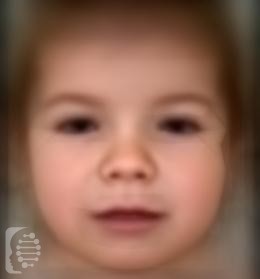What is Hypothyroidism, Congenital, Nongoitrous?
Congenital Hypothyroidism refers to hypothyroidism that is present at birth. This means that the thyroid gland does not function in part, or at all. The thyroid gland generates the hormones that contain iodine and which help to regulate growth and brain development, as well as the metabolism of the body. Congenital hypothyroidism affects the levels of these hormones in an affected individual, which in turn can impact different parts of their body.
The nongoitrous label of the syndrome refers to those cases where the thyroid is partially or fully missing as opposed to enlarged. If left untreated, the condition can cause delayed growth and intellectual disability.
As a result, testing for congenital hypothyroidism is standard in newborn screening and tests across the US.
The condition affects 1 in every 2-4,000 newborns in the US. For reasons that are as yet unknown, it has been found to affect more than twice as many female newborns as males.
What gene change causes Hypothyroidism, Congenital, Nongoitrous?
Just 2-5% of cases of the syndrome are believed to be inherited. Those that are are caused by mutations in the PAX8, TSHR, TSHB, NKX2-5, TRHR, CHNG3, STRTS, THRA, TBLIX, and IRS4 genes.
All types of inheritance have been described.
What are the main symptoms of Hypothyroidism, Congenital, Nongoitrous?
The main symptoms are linked to the hypothyroidism of the syndrome. In infants, these can include difficulty feeding and sleeping more than is usual. If left untreated in infants, it can cause intellectual disability.
Other symptoms may include delayed growth and delayed skeletal maturity.
How is it diagnosed?
To find out if someone has a diagnosis of Hypothyroidism, Congenital, Nongoitrous, it is important to have a consultation and evaluation with a clinical genetic specialist. Specialists may also suggest specific genetic testing or other types of tests to help reach a diagnosis. FDNA’s AI technology can help speed up the diagnostic process by analyzing facial features and other health information.

